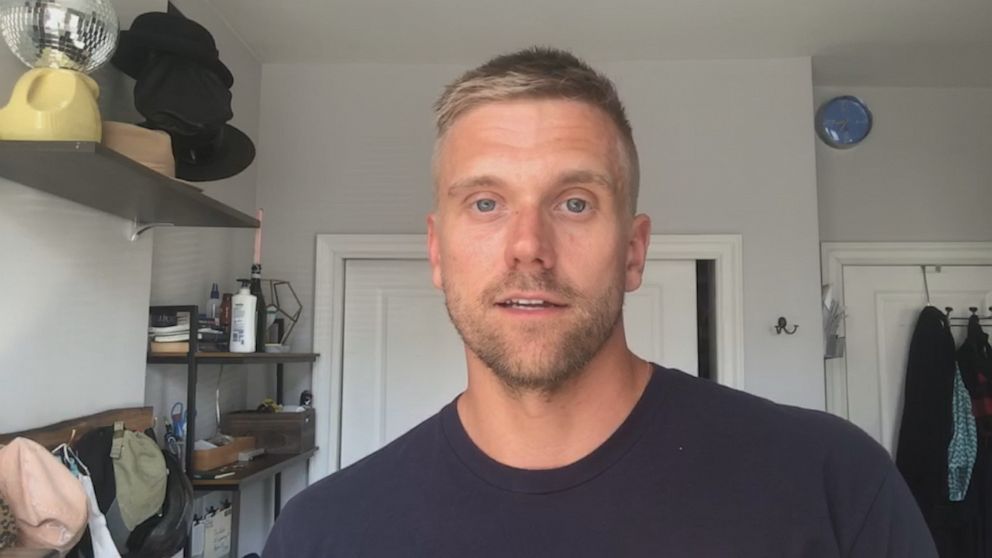Broadway actor, COVID-19 survivor Adam Perry talks about lingering symptoms 3 months later
Perry, who starred in "Frozen," tested negative for the virus in April.
A Broadway actor and singer who tested positive for the coronavirus over three months ago -- and is still experiencing symptoms that threaten his career -- said he's "hopeful" he'll be able to perform again.
Adam Perry, who most recently starred in the "Frozen" musical, is part of a group of COVID-19 survivors known as long-haulers. A dancer for 20 years, he described himself as healthy before testing positive for the virus in March. In April, he tested negative, but hallmark symptoms of the virus have persisted to this day.
"I was coughing and I felt tightness in my chest. I was constricted. I was having trouble breathing," Perry, 39, told "Nightline" co-anchor Juju Chang. "I just chalked it up to allergies, and then I got extreme fatigue."
"I had 14 days of symptoms that were very scary, and then after the 14 days, it kind of just went to breathing and coughing only," he added. "And that almost intensified. It was almost kind of like the fallout from the virus was almost worse than the virus."
Perry said he still has problems with breathing and coughing, and that these symptoms will go away long enough for him to think he's recovered before coming back. When he spoke to ABC News on Wednesday, he said he had a little tightness in his chest, but that it is "a better day."
"What happens is so constricting that you have to, like, physically think to inhale and exhale, and use extra muscles to do it," he said of his symptoms. "You get really uncomfortable and it's concerning and scary."
Perry recently shared a post about his condition on Facebook where he expressed disappointment in the recent surge of COVID-19 cases in the U.S. He said he "wouldn't wish it on anyone" and that the virus's effects have been "non-linear, confusing, frustrating and maddening."

Dr. Darien Sutton, an emergency room doctor and ABC News contributor who hasn't treated Perry, said he's been seeing more patients who still have symptoms of the virus up to nine weeks after testing positive.
With the virus still new to the world, he said there are only theories as to what's causing these issues. Some of them, he said, suggest the immune system is triggering an inflammatory response, which causes people to feel symptoms.
"During the height of the pandemic, we had many people who had this viral pneumonia, and that viral pneumonia was attributable to a lot of immune cells crowding the lungs, causing difficulty breathing," he said. "We're probably seeing more of that now in terms of a whole systemic body response where we're having patients coming in with this confusion, this body ache, this continued shortness of breath, and we're thinking that possibly could be associated with this chronic inflammatory response."
Sutton empathized with Perry's anxiety related to his condition, saying that patients ask him all the time if their symptoms will be permanent.
"I think that's very much associated with the ideation that it's really difficult to understand," he said. "What will the next day look like? Is this my new normal? And if I have to deal with this, how can I rearrange my life to accommodate it? And those things are really frustrating."
He said he has "tremendous amounts of hope" that Perry will eventually get better.
For his part, Perry said he's "very concerned" about being able to sing and dance on stage again. In an effort to improve his lung capacity, he said he's been working out his lungs.
"It's scary. I mean, I've been dancing and singing on Broadway for the past 20 years and, all of a sudden, I just don't have the capacity that I had anymore. So I'm hopeful for the future that they will get back to normal."





